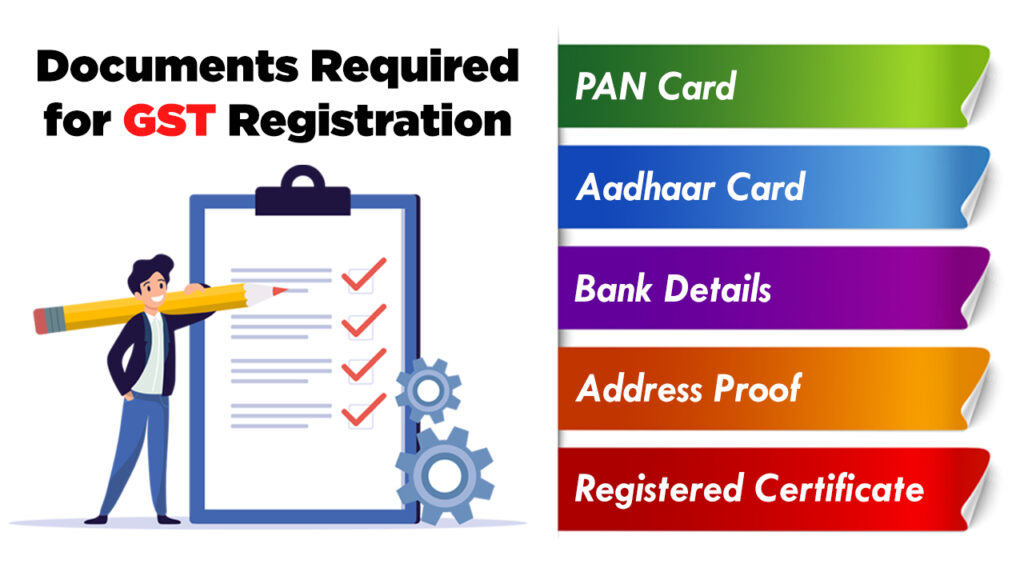The Ultimate Guide to Streamlining the GST Enrollment Process and Demands for Small Business Owners

Recognizing GST Fundamentals
To understand the fundamentals of the Product and Services Tax Obligation (GST) system, tiny organization proprietors need to first comprehend its underlying principles and implications. GST is a value-added tax obligation levied on most items and solutions for domestic consumption. It intends to simplify the tax process by replacing numerous indirect tax obligations imposed by the state and central federal governments. Under the GST routine, organizations are needed to register and collect tax in behalf of the federal government, making certain transparency and compliance.
One of the vital principles of GST is input tax obligation debt, which permits companies to claim debt for taxes paid on their acquisitions. This mechanism protects against the cascading result of taxes and promotes performance in the tax system. In addition, GST is a destination-based tax obligation, implying that the tax obligation is levied at the factor of usage instead than the factor of origin. This makes certain fair circulation of tax obligation profits among states based upon where the items or solutions are taken in. Comprehending these fundamental principles is essential for small company proprietors to browse the intricacies of the GST system and guarantee conformity with the regulation.
Eligibility Requirements for Registration
Having established a foundational understanding of GST principles, small company owners should now satisfy particular eligibility criteria to proceed with the registration process. In India, entities participated in the supply of items or solutions with a yearly accumulation turnover exceeding Rs. 40 lakhs (Rs. 10 lakhs for special category states) are required to sign up for GST. In addition, particular services such as those included in inter-state supply of products, laid-back taxable individuals, and those called for to pay tax obligation under the reverse fee system should register for GST irrespective of their turn over. Businesses that were registered under the previous tax obligation regime (BARREL, service tax, etc) are likewise mandated to register under GST. Agricultural organizations that just supply generate out of main production are exempt from GST enrollment. It is vital for company owner to thoroughly assess their qualification based on these criteria to make certain conformity with the legislation and prevent any fines for non-compliance.
Documents Required for GST Registration

Simplified Registration Refine Steps
Following the collection and confirmation of the requisite records, the enrollment procedure for GST can be browsed through a collection of streamlined steps designed to promote effective compliance for local business owners. The primary step entails checking out the GST portal and picking the 'New Registration' alternative. Consequently, the candidate needs to fill in Component A of the GST REG-01 form with information such as PAN, mobile number, and e-mail address to obtain an OTP for confirmation. Once the OTP is obtained and entered, a Short-lived Recommendation Number (TRN) is created for additional process. The next action requires submitting Component B of the type with important site essential company information, submitting sustaining files, and finishing the verification procedure making use of DSC or EVC. Finally, upon effective confirmation, an Application Recommendation Number (ARN) is released, indicating the completion of the GST enrollment procedure. By following these simplified steps, local business proprietors can effectively register for GST and make sure conformity with tax guidelines.
Tips for Ensuring Compliance
To keep governing adherence and functional integrity, persistent oversight and positive procedures are essential in making certain conformity with GST needs for small business proprietors. Small company owners need to remain upgraded with GST regulations, filing deadlines, and any changes in tax prices to stay clear of fines and keep an excellent standing with tax obligation authorities. Participating in GST recognition workshops or training programs can boost understanding and conformity with GST guidelines, inevitably profiting the organization in the lengthy run.
Verdict
Finally, local business proprietors have to understand the basics of GST, meet the qualification standards, gather required documents, and comply with the simplified enrollment process steps to make sure compliance. By simplifying the GST enrollment process and requirements, small company proprietors can avoid read here penalties and run their companies efficiently within the lawful framework - Singapore GST Registration. It is crucial for small company owners to stay enlightened and compliant with GST policies to keep a successful company operation
Small organization owners looking for GST registration have to guarantee they gather and submit the necessary records to complete the enrollment process successfully. The files needed for GST registration commonly include evidence of company enrollment or incorporation, FRYING PAN (Permanent Account Number) card of the service identity, address and entity evidence of the promoters/partners/directors, photographs, address evidence of the area of company, financial institution account statements or canceled cheques, and consent forms. Going to GST recognition workshops or training programs can go right here enhance understanding and compliance with GST laws, ultimately profiting the organization in the long run.
By streamlining the GST enrollment process and requirements, little organization owners can avoid charges and run their businesses smoothly within the lawful structure. It is essential for little organization proprietors to remain certified and educated with GST laws to maintain a successful business operation.